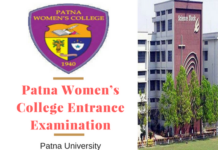Metallurgy is the scientific study of metals and its uses. It is a field of Material science and of materials engineering which deals with physical and chemical behavior of metallic elements and alloys. Through Metallurgical Engineering, Candidates can learn how to use metals in machinery and other industrial uses. Also, candidates will learn the basics of engineering other than material science. In these Metallurgy courses, candidates will be focused on learning of production, designing and manufacturing of metals and mineral products. This field of engineering includes learning of a large variety of materials such as glasses, semiconductors, polymers and intermetallics as well as metal and alloys. Candidates may read the whole article for complete details regarding the Metallurgy courses. Metallurgy engineering is a challenging field that allows you to use your creativity and problem-solving skills. Metallurgy engineering is a growing field with many job opportunities.
Admission Open 2023
- Top University & Colleges Official Links, Application & Scholarship Forms.
Metallurgy Engineering Courses
Contains
The table shows the duration, eligibility, and fees of various metallurgy engineering courses available in India. The fees may vary depending on the institute and the course.
Subscribe to Get Updated Information about Metallurgy Engineering Course Details 2023: Admission, Scope, Eligibility, Fees, Colleges - Admissions
| Course Name | Duration | Eligibility | Fees |
|---|---|---|---|
| Bachelor of Engineering (B.E.) in Metallurgy | 4 years | 10+2 or equivalent with at least 50% marks in Physics, Chemistry, and Mathematics | INR 5-8 lakhs per annum |
| Master of Engineering (M.E.) in Metallurgy | 2 years | Graduate in Metallurgy or a related field with at least 50% marks | INR 3-5 lakhs per annum |
| Doctor of Philosophy (Ph.D.) in Metallurgy | 3-4 years | Master’s degree in Metallurgy or a related field with at least 55% marks | INR 4-6 lakhs per annum |
Scope of Metallurgy Engineering Courses
Metallurgy engineering is getting very popular and having a high scope in India as well as abroad. Candidates after completing the course can make a successful career in the metallurgical and manufacturing industry, academics, research and development. In India, Candidates can easily get a job in metallurgical industries such as Larson’s group, The Metal Powder Company ltd, NALCO, Tata Steel, Jindal Steel etc.
Metallurgy Engineering Popular Courses
The popular courses of Metallurgy are given below:
- Bachelor of Technology in Metallurgy and Materials engineering.
- Master of Technology in Material science and engineering.
- B.E/ B.Tech or equivalent in Metallurgical/ Materials/ Metallurgy and Materials/ Mechanical/ Production/ Ceramics engineering.
What is the Eligibility Criteria of Metallurgy Engineering Courses?
Candidates have to fulfil the basic eligibility requirements to apply for the Metallurgy courses. The details regarding the Metallurgy courses are given below:
UG Courses:
-
-
- Candidates must have passed class 12 or equivalent from a recognized board.
- Candidates must have Physics, chemistry and mathematics as compulsory subjects in their class 12.
-
PG Courses:
-
- Candidates must have a B.Tech degree in the same field from a recognized college or university.
- Candidates .ill also have to clear the GATE exam for the recognized colleges and universities.
- Candidates seeking admission in IITs have to clear the IIT JEE Exam in order to get admission.
Colleges and Universities Offering Metallurgy
There are various colleges providing Metallurgy courses. The top Metallurgy colleges are listed below:
- Indian Institute of Technology, Roorkee
- Indian Institute of Technology (BHU), Varanasi
- National Institute of Technology, Tiruchirappalli.
- College of Engineering, Pune, Maharashtra
- Indian Institute of Engineering Science and technology, Shibur, Howrah, West Bengal
- Government College of Engineering, Salem, Tamil Nadu
- Government Engineering College, Gandhinagar, Gujrat
Check Popular Courses After 12th Here.


















